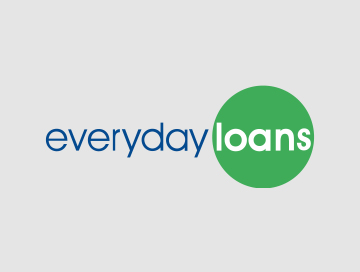Bad habits are easy to develop, usually through stress or boredom. They’re also difficult to break because they become hardwired in our brain as part of everyday life.
Many bad habits damage our finances as well as our health. Yet we persist with them to get instant gratification while ignoring the long-term consequences.
In this post, we’ll be looking at common bad habits that cost you money, and what you can do to overcome the problem.
Smoking
In 2023, 5.4 million adults in England were still smoking – the leading preventable cause of premature death.
Smoking is also an expensive bad habit.
After the spring 2023 Budget, the average price of a packet of 20 cigarettes is £14.73. That’s a whopping £5,376 a year – the cost of a luxury holiday.
Hidden Costs of Smoking
Illness or disability related to tobacco use could lose you income through missed work, and smoking can significantly increase life insurance premiums.
Smoking also costs the country as a whole hundreds of millions of pounds, from clearing litter to provision of health care.
In 2022, the Action on Smoking and Health (ASH) charity revealed that smoking was costing society £17 billion a year.
How to kick the habit
Stop-smoking experts recommend these steps to help kick the habit.
- Set a date for quitting smoking.
- Tell people you’re stopping smoking and ask for their support.
- List your reasons for quitting.
- List the things that trigger you to smoke and how you can avoid them.
- Use smoking cessation aids to manage cravings.
- Change your routine if you smoke at certain times of day.
- Keep cravings at bay by exercising.
The NHS runs free stop-smoking services, including one-to-one and group sessions.
Alcohol Consumption
Heavy drinking can put a serious strain on your finances as well as your health. Even if you drink safely in moderation, alcohol consumption still hits your wallet.
With the exception of draught beer in pubs, alcohol duty rates were increased by 10.1 percent in the spring Budget in line with inflation.
This saw the cost of a bottle of wine go up by around 44p – the biggest price hike in more than 50 years, according to the Wine and Spirit Trade Association.
At the same time, tax on an average-priced bottle of Scotch whiskey increased from 70 percent to 75 percent.
An Office of National Statistics (ONS) report on family spending revealed that in 2021 households on average were spending £17.60 a week on alcohol.
Over the course of a year, this adds up to £915. This is three percent of the typical UK household budget, and more than we spend on groceries such as meat and fish.
Because of the cost-of-living crisis, nearly 50 percent of drinkers plan to cut back on spending on alcohol in 2023, according to a research survey.
How to Reduce Alcohol Consumption
If you’re worried about spending too much on alcohol, there are several steps you can take to cut back.
- Restrict the amount you’re going to drink.
- If you’re going to the pub, don’t take a lot of money.
- Get support from friends and family in your efforts to curtail drinking.
- Drink a little less each day.
- Drink smaller amounts – a small glass of wine instead of a large one, or a bottle of beer rather than a pint.
- Choose drinks lower in alcoholic strength.
- Alternate alcoholic drinks with soft drinks or water.
- Aim for several drink-free days each week.
Gambling
Unlike smoking and drinking, gambling doesn’t pose a threat to your physical health. But the more you lose, the greater the strain on your household finances. This can result in stress and damage to relationships.
Even when gambling doesn’t become an addiction, the habit can still be expensive. With most forms of gambling, you should expect to lose money in the long run – the odds aren’t on your side.
A report on online gambling published by Citizens Advice in December 2021 showed that:
- More than 18 million people regularly gambled online.
- Over 3.3 million people had gambling debts.
- The average gambling debt was £10,000.
- One in five gamblers regrets the habit.
Regaining Control
If you feel your gambling, online or otherwise, is getting out of hand, you can start to regain control by:
- Talking about your gambling with a family member, friend, or professional counsellor.
- Not using gambling venues as a place to socialise.
- Finding an alternative recreational activity.
If you’ve become addicted to gambling, evidence suggests the problem can be treated as successfully as other addictions.
Cognitive behavioural therapy (CBT) – available through the NHS – usually has the best results.
Gamblers Anonymous runs local support groups that use the same approach to recovery from addiction as Alcoholics Anonymous.
Spending on Non-Essentials
We’re all creatures of habit and slipping into a routine of spending on things you could do without can add up big time in the long term.
Spending on meals out and takeaways, for instance, or buying cups of coffee, might not seem such a huge expense at the time but it’s probably hitting you in the pocket a lot harder than you think.
A food takeaway is likely to be cheaper than dining at a restaurant, but it’s still more expensive than cooking your own food at home. On average, we spend £42.30 a month on restaurants and takeaways – £507 a year.
The average takeaway coffee costs £3.40. Five takeaways a week will set you back £74 a month – £888 a year.
Add your takeaway coffee and restaurant/takeaway bills together and you’re looking at more than £1,300 a year you could be saving.
By the way, food waste is another costly bad habit. According to the Waste and Resources Action Programme (WRAP), households throw away 4.5 million tonnes of edible food a year, at a cost of £60 for the average family.
Making Better Use of Your Money
Habits such as smoking, drinking, or gambling, and spending on non-essential items, may be difficult to break, but it’s worth the effort and could save you thousands of pounds a year.
If you need a little extra motivation to curb your bad habits, consider what else you could be using that money for instead. Offsetting the soaring cost of electricity and gas? Becoming debt free? A dream holiday?
These could well be in your financial grasp by avoiding the bad habits that cost you a small fortune.




